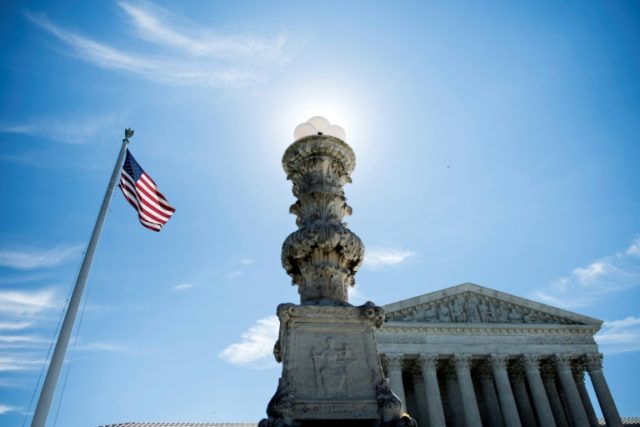The Department of Justice filed its appellate brief for the coming final showdown in the nation’s highest court over President Donald Trump’s executive order travel ban Thursday.
The brief argues that the lower courts must dismiss the case because the plaintiffs lacked standing to bring it, and that the president’s order is fully consistent with federal law and the U.S. Constitution.
The 84-page brief asks the Supreme Court of the United States to dismiss the parties suing to block the ban’s arguments based on the Establishment Clause of the U.S. Constitution. The government asserts that those living abroad are simply not allowed to invoke the protections of the Constitution and that the limitations the president chooses to impose on their ability to travel to the United States are not subject to scrutiny by federal courts.
If the Court accepts the DOJ’s arguments, it will go far in halting the growing attempt by the political left to make immigration policy subject to the full dictates of the Bill of Rights and create an Establishment Clause jurisprudence that prevents the federal government from taking action in the immigration context that has a disparate impact on different religions. The Establishment Clause has never been held to apply to executive actions on immigration at the Supreme Court.
The Supreme Court is expected to take up the consolidated cases of Trump v. International Refugee Assistance Project and Trump v. Hawaii when it reconvenes this October. After months of litigation, the cases are expected to decide the final fate of the administration’s campaign promise to institute a temporary ban on travel from six overwhelmingly Muslim countries with close links to war and terror.
The potentially landmark cases are expected to attract dozens of amicus briefs from interested third parties on both sides of the dispute next week as they become due. The parties opposed to the ban, a consortium of leftist non-profits and open-borders activists, will file their briefs in response to the government’s next month.
In addition to the main case, the government has also asked the Supreme Court to clarify the details of its partial reinstatement of the travel ban. Before that reinstatement, the Ninth Circuit Court of Appeals had, in large part, excepted the arguments of the open-borders groups and the rulings of U.S. district courts in Hawaii and Washington, enjoining the implementation of the ban. The same district court judge in Hawaii then sought to again take the teeth out of the action to narrowly interpret the Supreme Court’s order unblocking sections of the ban.
Trump v. International Refugee Assistance Project and Trump v. Hawaii are scheduled to be heard before the Supreme Court on October 10. The government will be represented by Acting Solicitor General Jeffrey Wall and his team.

COMMENTS
Please let us know if you're having issues with commenting.